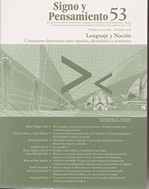Abstract
This work propounds a thorough analysis of the printed press coverage of the evictions of Barcelona squatters, better known as “okupas”, which took place between December, 2006 and January, 2007. The dailies herein used were: Metro Directe, Diario ADN, 20 MIN Barcelona, and Qué Barcelona in tabloid format. Our interest was stimulated by the frequency with which the problem was approached, by the people who participated —among them the “Mossos d’esquadra” and the Catalonian police force—, by the interest shown by the city’s policy makers on housing and cultural issues, as well as by the very popular concern for the squats. We even got in touch with the “okupas” themselves, and visited the Casa Miles de Viviendas, where on November 15, 2006, Universitat Pirata was created, but did not reach the news till February 7, 2007, via the 20 MIN Barcelona paper, with a feature titled “Obren al La Barceloneta una universitat ‘okupa’”, with the by-line F. CEDÓ. The issue of the “okupas” is part of a bigger problem, that of the use of urban space in a city that claims world status and serves as a customary reference, at least in Europe. We also examine how the printed discourse of the daily free publications gradually constructs a particular topic for a particular public.This journal is registered under a Creative Commons Attribution 4.0 International Public License. Thus, this work may be reproduced, distributed, and publicly shared in digital format, as long as the names of the authors and Pontificia Universidad Javeriana are acknowledged. Others are allowed to quote, adapt, transform, auto-archive, republish, and create based on this material, for any purpose (even commercial ones), provided the authorship is duly acknowledged, a link to the original work is provided, and it is specified if changes have been made. Pontificia Universidad Javeriana does not hold the rights of published works and the authors are solely responsible for the contents of their works; they keep the moral, intellectual, privacy, and publicity rights.
Approving the intervention of the work (review, copy-editing, translation, layout) and the following outreach, are granted through an use license and not through an assignment of rights. This means the journal and Pontificia Universidad Javeriana cannot be held responsible for any ethical malpractice by the authors. As a consequence of the protection granted by the use license, the journal is not required to publish recantations or modify information already published, unless the errata stems from the editorial management process. Publishing contents in this journal does not generate royalties for contributors.


